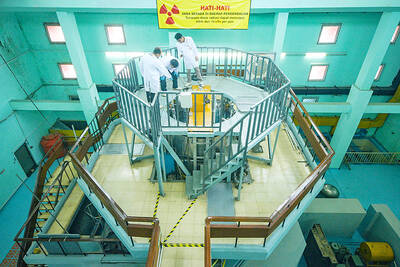Twitter’s 20 billionth message didn’t make much sense, but it spoke volumes about the rapid global growth of the microblogging service.
It came at 12:44am from user “GGGGGGo_Lets_Go” in Japan, where Twitter has exploded in popularity over the last year. The San Francisco-based company estimates the Japanese send nearly 8 million tweets a day, about 12 percent of the global total and second only to the US.
The tweet itself is hard to decipher, since it appears to be part of a longer conversation between two users.
“So that means the barrage might come back later all at once,” wrote the declared graphic designer and avid fan of the Tokyo Yakult Swallows baseball team in Japanese.
It didn’t take long before GGGGGGo_Lets_Go was inundated with congratulatory messages from around the world for hitting the social networking milestone. The user bio changed shortly thereafter.
“I’m grateful and humbled by those who are visiting because of my 20 billionth tweet. Be warned, I tweet a lot about baseball.”
While it took Twitter four years to reach tweet number 10 billion this March, it took less than five months to double the figure thanks to its increasing popularity worldwide.
Twitter chief executive Evan Williams traveled to Tokyo earlier this month to celebrate its success in Japan.
“We’ve come a long way in two years, especially in Japan,” he told an enthusiastic crowd of about 500.
Japanese Twitter users set a world record when the whistle blew in the World Cup game, in which Japan beat Denmark, at 3,283 tweets per second, mostly believed to have been Japanese. About 16 percent of Japanese Internet users tweet, surpassing the 9.8 percent of online Americans.
The company launched a Japanese language version in 2008 and released a mobile site in October.
One reason Twitter has been popular in Japan is that it’s possible to say much more in Japanese within the 140-character limit. The word “magazine,” for example requires just two characters in Japanese.

Four people jailed in the landmark Hong Kong national security trial of "47 democrats" accused of conspiracy to commit subversion were freed today after more than four years behind bars, the second group to be released in a month. Among those freed was long-time political and LGBTQ activist Jimmy Sham (岑子杰), who also led one of Hong Kong’s largest pro-democracy groups, the Civil Human Rights Front, which disbanded in 2021. "Let me spend some time with my family," Sham said after arriving at his home in the Kowloon district of Jordan. "I don’t know how to plan ahead because, to me, it feels

Poland is set to hold a presidential runoff election today between two candidates offering starkly different visions for the country’s future. The winner would succeed Polish President Andrzej Duda, a conservative who is finishing his second and final term. The outcome would determine whether Poland embraces a nationalist populist trajectory or pivots more fully toward liberal, pro-European policies. An exit poll by Ipsos would be released when polls close today at 9pm local time, with a margin of error of plus or minus 2 percentage points. Final results are expected tomorrow. Whoever wins can be expected to either help or hinder the

North Korea has detained another official over last week’s failed launch of a warship, which damaged the naval destroyer, state media reported yesterday. Pyongyang announced “a serious accident” at Wednesday last week’s launch ceremony, which crushed sections of the bottom of the new destroyer. North Korean leader Kim Jong-un called the mishap a “criminal act caused by absolute carelessness.” Ri Hyong-son, vice department director of the Munitions Industry Department of the Party Central Committee, was summoned and detained on Sunday, the Korean Central News Agency (KCNA) reported. He was “greatly responsible for the occurrence of the serious accident,” it said. Ri is the fourth person

SKEPTICAL: Given the challenges, which include waste disposal and potential domestic opposition, experts warn that the 2032 nuclear timeline is overambitious Indonesia is hoping going nuclear can help it meet soaring energy demand while taming emissions, but faces serious challenges to its goal of a first small modular reactor by 2032. Its first experiment with nuclear energy dates to February 1965, when then-Indonesian president Sukarno inaugurated a test reactor. Sixty years later, Southeast Asia’s largest economy has three research reactors, but no nuclear power plants for electricity. Abundant reserves of polluting coal have so far met the enormous archipelago’s energy needs, but “nuclear will be necessary to constrain the rise of and eventually reduce emissions,” said Philip Andrews-Speed, a senior research fellow at the